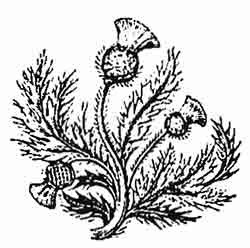Obituary — Professor AJ Aitken

Anne Smyth
On 11 February 1998, Jack Aitken, foremost lexicographer and authority on the Scots Language, died while reading at his desk at home in Edinburgh. It was appropriate that he should die as he had lived, reading his much-loved native tongue, in the city of his birth.
Jack was eighteen years of age when the Second World War broke out, putting his education on hold “for the duration”. He served with the Royal Artillery, and in June 1944 was among the first to take part in the Normandy landings. However, in 1947 he graduated from Edinburgh University with first class honours in English Language and Literature.
So began a distinguished career as a lexicographer and lecturer. The great work of Jack’s life was A Dictionary of the Older Scottish Tongue to which he dedicated almost forty years, firstly as assistant to Sir William Craigie, its first editor, and then as his successor. This massive work, of which seven volumes have been published, is scheduled to reach completion in the year 2000. Jack Aitken put his own unique stamp of authority on the dictionary, making it a much more comprehensive publication. It was his intention that it would become part of Scotland’s cultural heritage, a valuable repository of information on all aspects, linguistic and otherwise, of the life of its people.
Meanwhile, Jack became Assistant Lecturer, then Senior Lecturer, and finally Reader at Edinburgh University, lecturing on English and breaking new ground in the teaching of Scots as a university subject. His scholarship was recognised in the many honours that were heaped upon him. He was awarded the Sir Israel Gollancz Prize by the British Academy in 1981; in 1983 he received the degree of DLitt from Edinburgh University; and in 1965 he was made an Honorary Professor. He also had the distinction of having had a linguistic “law” named after him: this was “Aitken’s Law”, otherwise known as the “Scottish Vowel Length Rule”. Nor was he an unapproachable “ivory tower” academic, for his students held him in deep affection, and many of them continued to seek his advice long after they had graduated.
Jack Aitken’s steady wisdom was also much sought after by others involved in the business of dictionary compilation. He was a consultant to The Middle English Dictionary and The Dictionary of Old English, and an adviser to the editorial team of the Concise Scots Dictionary, for which he wrote a “History of Scots”.
Importantly for those of us on this side of “The Sheugh”, Professor Aitken did not act as if Northern Ireland were situated in some remote region of the world populated by head-hunters, but continued the involvement of such Scots linguists as our own Professor John Braidwood in matters of Ulster dialect. In 1989, he became an initiator of the Ulster Dictionary Project, based in the Ulster Folk & Transport Museum, which eventually produced the Concise Ulster Dictionary (1996). He remained the valued Consulting Editor and a member of its Editorial Committee throughout the life of the project, although his enthusiastic and extremely thorough opinions on matters of detail had to be curtailed when he suffered a heart attack in the spring of 1991. His health had for some years given cause for concern, and it was the opinion of his medical advisers that he was living on borrowed time thereafter. It was therefore a matter of great joy to those who had been associated with him on the project that he was spared to attend the launch of CUD on 21 June 1996.
Despite the restrictions imposed by his health problems, Jack’s keen intellect and interest in Ulster dialect could not be suppressed, and he made one last visit to the province to lend his considerable prestige to the launch of Dr Philip Robinson’s Ulster-Scots grammar on 2 December 1997. Jack’s presence and his speech at the launch did much to make it the memorable occasion it undoubtedly was.
Jack’s full name was Adam Jack Aitken. Very little ruffled his warm and friendly nature, but he did not appreciate being addressed as A. Jack Aitken. This was understandable, for he was definitely The Jack Aitken — a unique and remarkable individual.

Ulster-Scots Books
A range of Ulster-Scots books are available from The Ullans Press at
The Ulster-Scots Heritage Council, 218 York Street, Belfast, BT15 1GY
Next: What is Ullans?
Previous: Faith in Bellyclare
Contents: Ullans: The Magazine for Ulster-Scots, Nummer 6 Simmer 1998

